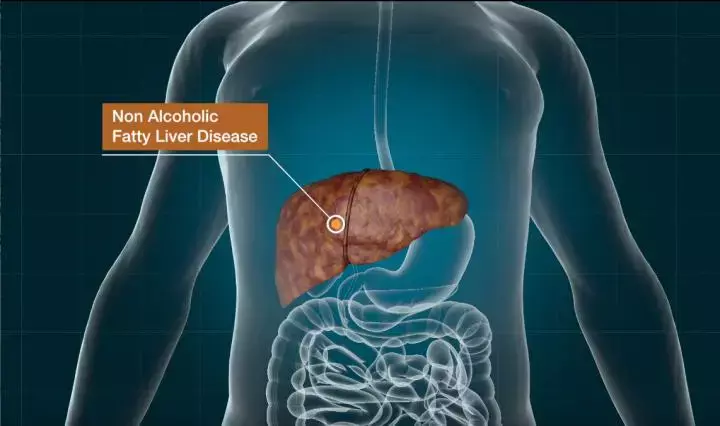- Home
- Medical news & Guidelines
- Anesthesiology
- Cardiology and CTVS
- Critical Care
- Dentistry
- Dermatology
- Diabetes and Endocrinology
- ENT
- Gastroenterology
- Medicine
- Nephrology
- Neurology
- Obstretics-Gynaecology
- Oncology
- Ophthalmology
- Orthopaedics
- Pediatrics-Neonatology
- Psychiatry
- Pulmonology
- Radiology
- Surgery
- Urology
- Laboratory Medicine
- Diet
- Nursing
- Paramedical
- Physiotherapy
- Health news
- Fact Check
- Bone Health Fact Check
- Brain Health Fact Check
- Cancer Related Fact Check
- Child Care Fact Check
- Dental and oral health fact check
- Diabetes and metabolic health fact check
- Diet and Nutrition Fact Check
- Eye and ENT Care Fact Check
- Fitness fact check
- Gut health fact check
- Heart health fact check
- Kidney health fact check
- Medical education fact check
- Men's health fact check
- Respiratory fact check
- Skin and hair care fact check
- Vaccine and Immunization fact check
- Women's health fact check
- AYUSH
- State News
- Andaman and Nicobar Islands
- Andhra Pradesh
- Arunachal Pradesh
- Assam
- Bihar
- Chandigarh
- Chattisgarh
- Dadra and Nagar Haveli
- Daman and Diu
- Delhi
- Goa
- Gujarat
- Haryana
- Himachal Pradesh
- Jammu & Kashmir
- Jharkhand
- Karnataka
- Kerala
- Ladakh
- Lakshadweep
- Madhya Pradesh
- Maharashtra
- Manipur
- Meghalaya
- Mizoram
- Nagaland
- Odisha
- Puducherry
- Punjab
- Rajasthan
- Sikkim
- Tamil Nadu
- Telangana
- Tripura
- Uttar Pradesh
- Uttrakhand
- West Bengal
- Medical Education
- Industry
Severe vitamin D deficiency linked to fatty liver: Study
 NONALCOHOLIC FATTY LIVER DISEASE (NAFLD) OFTEN LEADS TO VARIOUS LIVER COMPLICATIONS, BUT THERE IS A LACK OF DRUGS FOR THE TREATMENT OF NAFLD. view more CREDIT: GWANGJU INSTITUTE OF SCIENCE AND TECHNOLOGY
NONALCOHOLIC FATTY LIVER DISEASE (NAFLD) OFTEN LEADS TO VARIOUS LIVER COMPLICATIONS, BUT THERE IS A LACK OF DRUGS FOR THE TREATMENT OF NAFLD. view more CREDIT: GWANGJU INSTITUTE OF SCIENCE AND TECHNOLOGYBlida, Algeria: Results from a recent study have revealed a positive association between severe vitamin D deficiency and non-alcoholic fatty liver disease (NAFLD). The study appears in the Journal of Diabetes & Metabolic Disorders. Also, the authors quantified an an excess risk in women combining both metabolic syndrome (MS) and severe vitamin D deficiency.
NALFD is a very common liver disorder and indicates a group of condition wherein there is accumulation of excess fat in the liver of people who drink little or no alcohol. A non serious condition called fatty liver is the most common form of NALFD. Previous studies on the association between hypovitaminosis D and NAFLD have yielded conflicting results. Salam Bennouar, University Hospital center of Blida, Blida, Algeria, and colleagues, therefore, aimed to explore the individual and combined effect of hypovitaminosis D and MS on NAFLD in a cross-sectional study.
The study included 874 participants. The researchers used a sequential competitive immuno-fluoro-assay method for assessing 25(OH)D, and Fatty Liver Index (FLI) was used for NAFLD screening. The association between vitamin D status, MS and NAFLD was investigated using binary logistic regression and additive interaction.
Following were the study's key findings:
- Severe vitamin D deficiency was found to be positively related to NAFLD, women were at higher risk versus men (OR = 6.4 vs. OR = 5.8).
- In men, this association was partially masked by obesity.
- The additive interaction with MS was significant in women but not in men, the relative excess risk due to interaction was of 7.2, the attributable proportion due to the combined effect was of 0.6.
- The interaction mechanism is synergistic; the synergy index: was of 2.9.
"We found a positive association between severe vitamin D deficiency and NAFLD," wrote the authors. "Moreover, an excess risk in women combining both MS and severe vitamin D deficiency was quantified."
Reference:
Bennouar, S., Cherif, A.B., Kessira, A. et al. Association and interaction between vitamin D level and metabolic syndrome for non-alcoholic fatty liver disease. J Diabetes Metab Disord 20, 1309–1317 (2021). https://doi.org/10.1007/s40200-021-00857-5
Dr Kamal Kant Kohli-MBBS, DTCD- a chest specialist with more than 30 years of practice and a flair for writing clinical articles, Dr Kamal Kant Kohli joined Medical Dialogues as a Chief Editor of Medical News. Besides writing articles, as an editor, he proofreads and verifies all the medical content published on Medical Dialogues including those coming from journals, studies,medical conferences,guidelines etc. Email: drkohli@medicaldialogues.in. Contact no. 011-43720751


